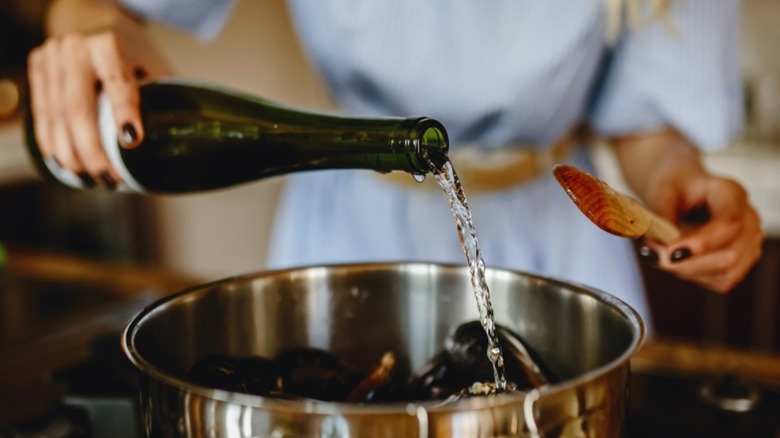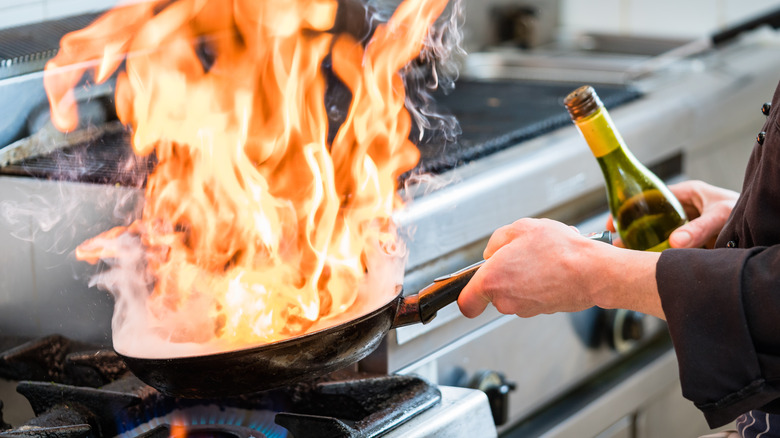Why You Should Remove Your Pan From The Stove When Adding Wine
Cooking with wine was once a restaurant trade secret until chefs like Julia Child shared their recipes on television. Like adding vinegar or lemon juice, the acid in wine helps amplify the different flavors and create a more complex sauce, stew, or marinade.
When cooking with wine, use something you would drink. If you don't like the way it tastes in a glass, you won't like it in your dish. We are not encouraging you to open a $50 bottle of wine for your next stew, but those non-alcoholic "cooking wines" found in supermarkets should be avoided. According to the Food Network, "cooking wine" contains too many preservatives, sweeteners, and salt, which can alter the taste of your recipe, turning your yum into yuck. Instead, use the wine leftover from another night, or if you're part of "the clean plate club of wine," open something inexpensive but decent enough that you can enjoy a glass while cooking.
Wine should be used within four days. Anything older will begin to oxidize and go bad, transferring any unpleasant flavors to your recipe. While both red and white wine can be used, avoid cabernet sauvignon and chardonnay since they are oaky varietals and can turn bitter in the cooking process.
Deglazing your pan with wine
Any wine that won't be consumed or used for cooking within four days can be frozen in ice cube trays. The frozen cubes can then be stored in baggies until needed (via Wine Enthusiast). Although great for a recipe, we don't suggest trying to drink defrosted wine.
Chefs recommend using wine for deglazing a pan rather than stock or water since wine can cut through oil-based ingredients, helping to blend the flavors. Recently, (the adorable) chef Gennaro Contaldo took to YouTube to prepare all'Amatriciana while warning viewers about safely cooking with wine. Although wine doesn't have the same alcohol content as spirits like vodka, Contaldo reminds us to remove the pan from your gas burner when pouring the wine in. Alcohol is flammable, and any splashes can ignite, causing injury to you and your kitchen (via Thrillist).
When cooking with wine, add the wine at the beginning of cooking, so the alcohol has enough time to burn off. It can take upwards of fifteen minutes to evaporate most of the alcohol when deglazing (you'll never evaporate 100%) and hours if you are baking (via Wine Enthusiast). Wine is used to loosen those concentrated browned bits from the pan called fond and incorporate them into the dish. Whether you're making a pan sauce, braising, or slow-cooking a stew, there's often a place for wine in your cooking, elevating your dishes.

